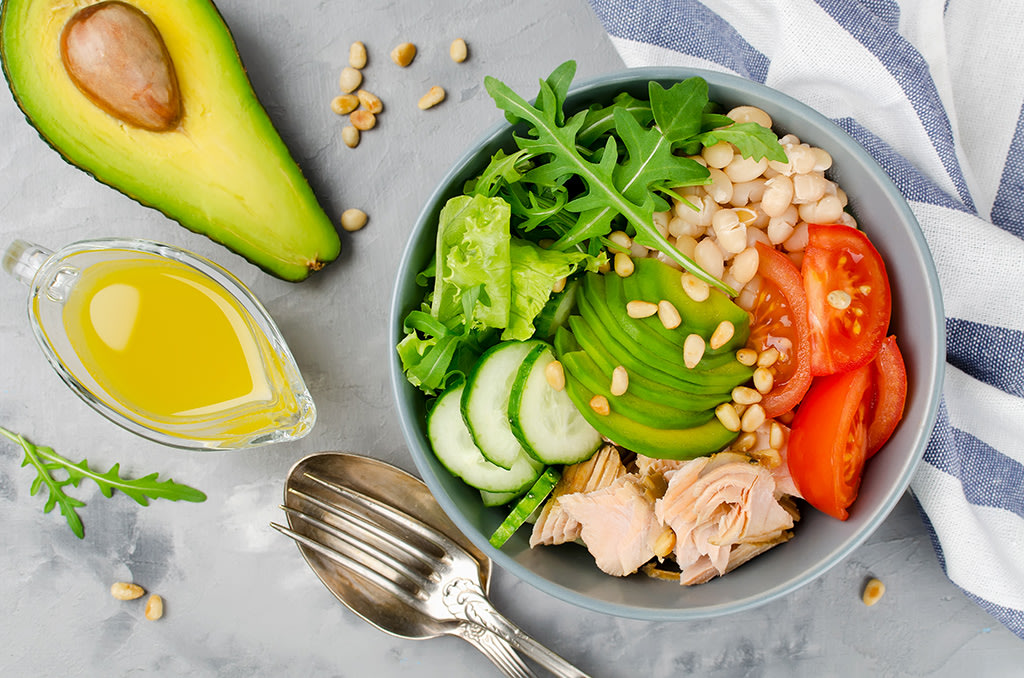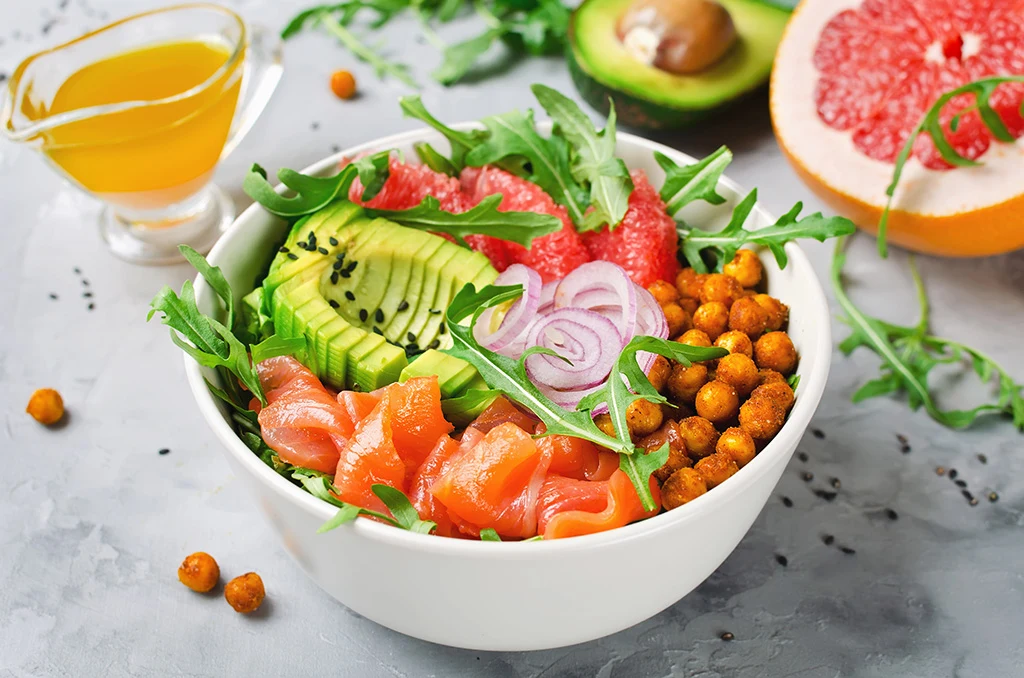OMAD: Should You Eat Just One Meal A Day?

February 28, 2020

There are so many different eating styles that you can try to help you to achieve your health and fitness goals. No matter which eating plan you follow, there are ultimately two ways to adapt your diet — you can change what you eat and you can change when you eat.
OMAD is a diet plan that focuses on when you eat. It’s not for everyone, but if you’re struggling to find an eating pattern that suits your lifestyle it might be an option you can discuss with your health professional.
Find Out:
What is OMAD?
OMAD, or “one meal a day” is a type of intermittent fasting where you eat all of your daily calories in just one meal. Most OMAD followers choose to eat between 4pm and 7pm — after eating this meal, the next meal is dinner the following day.
On the OMAD diet you fast for 23 hours each day — longer than the more common intermittent fasting intervals of 16:8. This long fast means that OMAD may not be suitable for everyone.

Why do people choose to eat one meal a day?
The purpose of OMAD is to create an extended fasting period that encourages your body to burn fat. The OMAD diet may also help to reduce appetite, and reduce total energy consumed throughout the day when compared to eating more frequent meals.
OMAD is most frequently used as a strategy to lose weight, but there may be other benefits to this eating style.
Benefits of OMAD fasting
There are claims that the OMAD diet can help to extend life span, boost metabolism and protect against disease. These claims are based on studies done in animals, not in humans, so more research is required to verify these claims.

It’s easy to follow
The simplicity of OMAD lies in the fact that you don’t have to think about food as frequently throughout the day.
This diet is easy to follow and implement — there’s no need to weigh food or purchase food items that might be hard to find. Meal prep is easier as you only have one meal to prepare, and you can spend the time that you would usually spend cooking or eating to do other activities.
It can help you to lose weight
Most people who use the OMAD diet have a weight loss goal. One study demonstrated that having just one or two meals each day is associated with a lower BMI, while eating three meals per day is associated with a higher BMI. There’s also some evidence that eating one meal a day may help to reduce hunger compared to eating more frequently.
However, when compared to a standard, calorie-restricted diet there isn’t a difference in weight loss outcomes. The OMAD diet can help you to lose weight, but it’s not necessarily a better option than standard calorie restriction.
Risks of the OMAD diet
The OMAD diet may not be a sustainable way to eat as it may not suit certain lifestyles including the ability to attend social activities outside of the eating window.
Another risk of OMAD is that you may not be able to reach your nutritional requirements for each day in a single meal. When you choose nutritional foods with a high fibre content like vegetables, fruit, protein and wholegrains, you may get too full in one sitting to eat the whole amount.
A 2007 study in the American Journal of Clinical Nutrition shows that eating all of the required calories in a single daily meal, instead of spread across the day, may lead to an increase in LDL (bad cholesterol) and blood pressure even when weight and total body fat decreases.
Other undesirable side effects of fasting for extended periods may include fatigue, dizziness, irritability, inability to concentrate and brain fog.

What should you eat on OMAD?
It may be tempting to eat highly processed foods that are energy dense, but may lack essential nutrients, to ensure that you meet your energy requirements for the day. To meet your macro and micronutrient requirements each day, it’s important to ensure that your meal contains a balance of all the essential nutrients.
Is the OMAD diet safe for everyone?
The long fasting window means that the OMAD diet may not be suitable for certain people. It is probably not suitable if you are taking medication or have a health condition including diabetes or hypoglycemia. Women who are pregnant or lactating should not follow OMAD. It’s also not recommended for children, the elderly or anyone with a history of disordered eating.
Always check with your doctor before starting a new diet or eating plan.

OMAD and exercise
The best time to work out if you’re following OMAD is either immediately before your meal, or soon after eating. This ensures that you are replenishing your energy stores post-workout or fueling for your workout.
When you choose to workout will depend on how you feel and how your body responds to fasted cardio. If you get dizzy or light headed during fasted training, do your workout after eating.
OMAD is an extreme fasting option that is suitable for some people
Every individual is different and will respond to fasting in a different way. This means that OMAD may not be a suitable option for you and your goals. The primary focus of any diet plan should always be on quality nutrition.
You should always choose a healthy eating style that is sustainable for you and your lifestyle, rather than opting for a fad diet or an extreme strategy. Above all, you should ensure that your diet is nutritionally adequate, diverse and you are eating enough for your body and your health and fitness goals.
Remember, small dietary changes can have just as much effect as extreme changes, and they are more sustainable in the long term. Some simple healthy eating habits you might include are: snacking less between meals or late at night, eating more mindfully, swapping refined sugars and processed foods for whole foods, or choosing an intermittent fasting style with a larger eating window.

A more empowered you starts with Sweat, and our editorial team is here to bring you the latest fitness tips, trainer recommendations, wellbeing news, nutritional advice, nourishing recipes and free workouts.
* Disclaimer: This blog post is not intended to replace the advice of a medical professional. The above information should not be used to diagnose, treat, or prevent any disease or medical condition. Please consult your doctor before making any changes to your diet, sleep methods, daily activity, or fitness routine. Sweat assumes no responsibility for any personal injury or damage sustained by any recommendations, opinions, or advice given in this article.
Nutrition